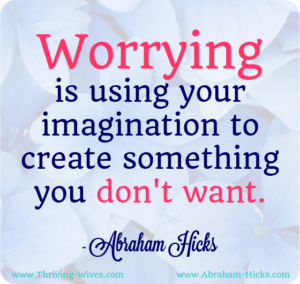 In my work over the past 20 years or so, I’ve paid a lot of attention to “employee engagement.” Not side-stepping the profession of companies and software tools that quantify that, I’ve looked more at whether or not an employee cares about his environment (the company and its goals, the people around him, those who supervise him, and who he supervises, etc.).
In my work over the past 20 years or so, I’ve paid a lot of attention to “employee engagement.” Not side-stepping the profession of companies and software tools that quantify that, I’ve looked more at whether or not an employee cares about his environment (the company and its goals, the people around him, those who supervise him, and who he supervises, etc.).
I’ve also worked with people who took the concept of caring to an extreme by magnifying it to the level of worry. Courtesy of wikidiff.com.
Care: To be concerned about, have an interest in. To look after. To be mindful of.
Worry: To be troubled, to give way to mental anxiety. To cause concern or anxiety. To trouble mentally or cause to fret.
Simply stated, I now see worry as care with a good dose of fear infused.
I can empathetically or even sympathetically care for someone or someone’s situation without fearing an outcome if he doesn’t:
… do the right thing
… pass the test
… survive the injury or illness
… marry the right person
… meet his sales quota, and
so on.
But when caring in order to justify worrying, I’m judging. I’m projecting that the best thing will not happen if blah, blah, blah doesn’t occur.
I’ve written on FEAR in the past: “False Evidence Appearing Real” (author unknown). Almost all fear is attached to future possibilities.
When I experience fear, it triggers the “fight, flight, or freeze” reaction, harbored deep within my amygdala, a piece of my brain left over from 200 million years of evolution. That reaction is probably responsible for our species getting as far as it has in this time period. But it is triggered by my perception of the threat. And only if FEAR is part of it do I fight, flee, or freeze.
If I can prevent care from morphing into worry through fear, then I can operate in my normal (I like to think!) productive mode.
You may recognize my favorite quote from Viktor Frankl: “Between stimulus and response there is a space. In that space is our power to choose our response. In our response lies our growth and our freedom.”
If I can choose to understand that my fear is of something that may or may not happen in the future, then I can also choose to not apply it to the object of my caring, and hence not overtly worry.
Ask yourself this: Of the last 10 things you recall worrying about, how many came true. (I know I’m taking a risk here. I suppose many of you are really good at filtering out only the things you know will crash and burn.)Statistically I believe it’s very few.
I know that many of my friends worried that Donald Trump would win the 2016 election and that would be the end of life as they knew it. He did, and I don’t believe it was.
I know a similar number of my friends who worried that Joe Biden would win the 2020 election. He did, and I don’t believe it will be.
I like to believe we all care about our country, our personal and national well-being, and getting beyond COVID-19. But I don’t how 250 million souls worrying about it adds anything productive—just my $.02.
Care? Yes. Worry? That’s a fight, flee, or freeze attack on my brain that I can prevent. It is my choice.


